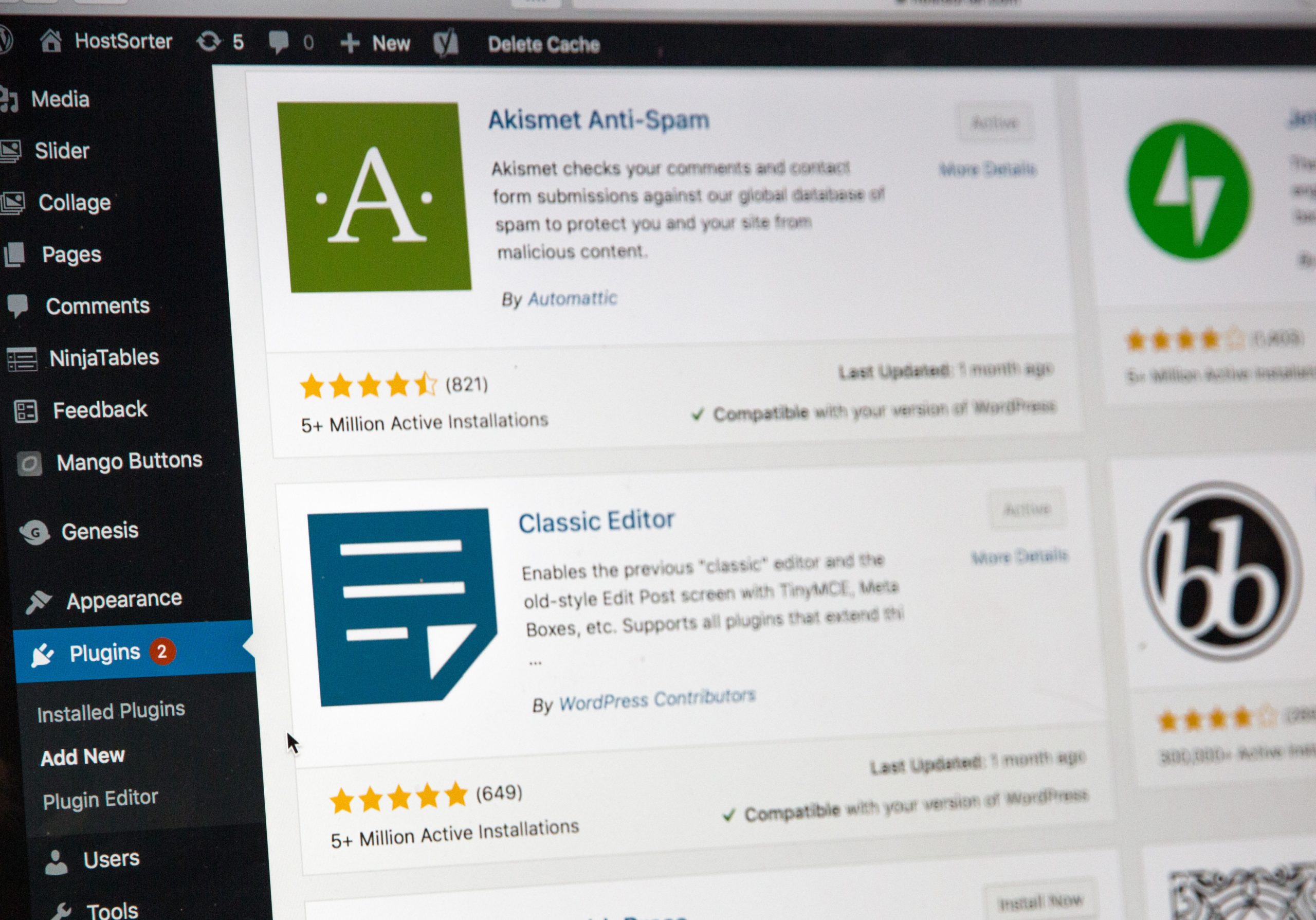WordPress has a vast ecosystem of themes and plugins. Whilst themes primarily handle the appearance of the site, plugins, like sms plugin for woocommerce, extend the functionality. If you have a WordPress site, you are most likely running several plugins by default even if it’s a fresh install.
Having a vast collection of plugins available to us means we’re more likely to find a plugin that does what we want. But the age-old adage comes into play here ‘quality over quantity.
Creating plugins is not particularly difficult and, without intending to offend anyone, not everyone is going to make a great plugin.
So what is the consequence of a bad plugin? Since you are effectively adding more code to what is already a large computer program (WordPress itself), even minor changes have the potential to introduce issues from plugin conflicts right up to major security issues.
The golden plugin rule
Just a quick friendly reminder; before you go and make any changes to your site by installing new plugins, please remember to backup everything.
Like I said, plugins add more code to an already large program. And any coder will let you know that this can create breaking changes throughout a site, meaning things that previously worked might not continue to do so.
Suggestions on picking plugins
So where to start?
Firstly, my personal preference is to download plugins from the WordPress plugins directory as opposed to directly from any plugin publisher websites.
This is down to trust as the directory comes with the following benefits:
- Plugins have to go through a vetting process to appear in the directory (as can be seen on the WordPress plugin submission page)
- Community members can submit publicly viewable issues; the severity of the issue and the response time of the plugin author can give indicators on whether the project has serious issues and/or has been abandoned
- The community can also rate plugins; this is subjective data but a high amount of installations with a low average rating could be a red flag
Obviously all this data is to be taken with a pinch of salt. But I’ve included an example of a widely used plugin later on that doesn’t look good if you just took into account the response times for user issues.
Accessing the WordPress plugins directory
The WordPress plugins directory can be accessed from within the admin area by clicking the Plugins link on the left panel, then clicking the ‘add new’ button. Alternatively you can visit the directory page here.
If a plugin has a public GitHub or Bitbucket repository this also gives insight into current issues and ongoing development. By viewing the state of the last ‘commits’ (when work was saved in the repos) you can see how recent any changes saved are.
If you are completely unfamiliar with GitHub or describe yourself as non-technical, it’s easiest to see GitHub as a vault for code.
Github helps several people work on a project at the same time as their changes are stored in such a way that they can be kept separate from the main branch of code, reviewed and either merged into the main code or discarded.
(This helps avoid issues when working in teams as people can inadvertently work on the same area and overwrite each other’s changes causing all sorts of headaches!)
A quick way to spot if a project is active on GitHub is to check the ‘last commit’ date time. If we go to the hugely popular eCommerce plugin WooCommerce’s GitHub repos you can see the recent activity by viewing all the commits.
The issues section might be worth checking as well although maybe a bit too overly technical when you are trying to get an overview of the project. Issues on GitHub are more likely to come from developers working on the project so will be at a more granular level and may not be helpful when trying to get an overview of the plugin from a site owners perspective.
Advanced custom fields
Using some of the suggestions above, let’s see how useful they are when applied to one of the most popular plugins available, Advanced Custom Fields.
The Advanced Custom Fields plugin has been, from personal experience, one of the best tools for WordPress development allowing anyone to easily add fields to the WordPress admin area for content customisation. This makes it simple for site builders to tailor the admin area to the specific individual needs and data structures each website requires.
I’ve used it on countless sites and I know numerous other developers who’ve relied heavily on this great plugin.
With 1 million+ installations ACF is one of the most widely used plugins available. With an average rating of 5 stars from the majority of voters it is looking good for ACF, except when we look at the issues area. As of time of writing, there are over a handful of issues submitted over the last few weeks with 0 responses.
So is ACF bad since there are so many unanswered support tickets? Is the customer support lacking?
Actually, this is one plugin where we have to zoom out and look at the bigger picture. As ACF is so widely used it also has a ‘pro’ version. Paying customers issues will take priority so in this instance the slow response time is actually an indicator of a busy team!
If we go to the advanced custom fields plugin site directly, they have built a support section where the team can be contacted, experts can be hired and tickets can be submitted to the community.
So they’ve actually offered up more support avenues for the non-paying customer than just the issues section on the plugins directory page.
Now I did say I prefer to use the directory plugins page and I still do for plugins I don’t know, but if a plugin has a separate site it can be good to take a visit and look at the site information and quality of the overall page. ACF’s plugin page is extremely well designed and functions well , it’s clear this is a professional outfit.
If a plugin site looks cheap it could be an indicator that the project is not taken too seriously, or it could just be an overburdened one-man band who’s thrown together the site quickly to focus on plugin development.
When it comes to plugins, unfortunately, there really are no hard and fast rules. However, thorough research will reveal information that can be reviewed together to get a better indicator of a project’s quality.
One last thing
Most important of all, plugins will come and go. Some might still cause problems regardless of how well they have been coded due to your unique setup, conflicts with other plugins, etc. When it comes to websites Nothing is 100%.
So always back up your site’s content and database! That way you can roll back any changes and review your choices.





